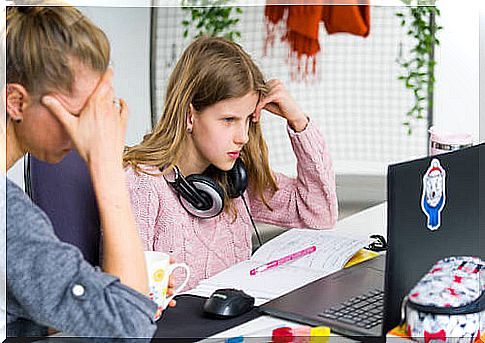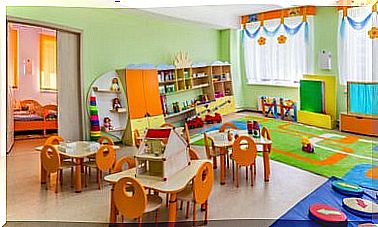Learning Disabilities In Adolescents: How Can We Help Them?

Learning difficulties can reduce a teenager’s self-esteem. At this stage of our kids’ development, socializing and being popular is of paramount importance to them. So, if they have learning difficulties, they may feel frustrated and think it’s not worth the effort because they won’t improve their condition that much.
Clearly, this is not the case. As a parent, you need to keep in mind that by helping your teen adequately, you will decrease his learning difficulties by improving his cognitive skills. This way, he will be able to achieve his goals according to his abilities.
Talk about what’s happening to him
The thing teenagers want most is to feel “normal”. This explains why all teens use the same style of clothing, have the same slang, watch the same movies, and listen to the same music as their peers. Your child does not want to feel “different” and be classified as “the idiot”, “the one who does not understand” or who has learning difficulties. Your child just wants to fit in and be accepted by society.

If you talk to your child about what is happening to him, his answers may immediately reassure you. Through dialogue, he will be able to understand what is causing him problems. The first step in helping a teenage child who has a learning disability is to understand exactly what is happening to them and why.
It is also helpful to make him aware that there are many other teenagers who have the same problem and who work hard every day to improve their learning skills. A good idea is to contact families of kids who have the same problem and ask for information on how they are trying to resolve the situation.
How to help your teenage child with learning difficulties
It’s hard to accept being different, especially for teenagers. That is why we are going to introduce you to some ways you can help your child cope with their problem. Remember that it is very important to speak tactfully and understand his emotions at all times.
Individual therapy for adolescents with learning difficulties
After the diagnosis, some families decide to have their children follow individual therapy for a short period of time to give emotional support to children who feel “different” from their peers. A good therapist will help your child focus on their strengths and weaknesses so that they can accept the challenges they will face in the years to come.
The psychologist will help the boy to cope with his difficulties in the best possible way. This way, your child will know that despite having difficulties, they can still finish their schooling without having to feel inferior to their peers.
Support groups for adolescents with learning difficulties
Some schools organize support groups for pupils with learning difficulties. This kind of support can be very helpful to kids. If there are no such groups in your child’s school, you can ask the principal to create one or contact associations in your area.
You, as parents, may also need help. When you find a support group for your child, you can ask if there are also groups for parents who are in the same situation as you.

There may be groups in your city that offer services for students with learning difficulties. In this way, you will come into contact with other parents who can provide you with useful information.
Contact associations
You can also see if there are any national associations that specifically deal with adolescents with learning difficulties. By contacting these associations (for example AIRIPA) you will certainly have more information on the subject.
In addition, national associations can refer you to associations in your area that organize seminars on various topics related to school and learning. This way, you will have much more information to address your child’s problem.
We hope that the information we have given you will be useful in helping your child overcome their learning difficulties. By doing this, your self-esteem will also improve.
By knowing how to deal with the problem, your child will be able to improve his condition without feeling inferior to anyone. Each person is unique and unrepeatable, especially thanks to its peculiarities.









